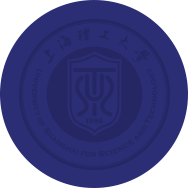In recent years, the medical field has become a hot spot for science and technology innovation. Supported by such cutting-edge technologies as artificial intelligence, 3D printing and 5G communications, the innovation of medical devices embraces a larger than ever prospect.

More than 1,000 experts from the world medical device industry attended the Third World Medical Device Design Conference (China on December 7). They all believed that the development of the medical device industry is increasingly dependent on the joint research of multiple disciplines. The latest research in biomedical science and the innovation in research-production transfer increasingly demand trans-disciplinary cooperation.
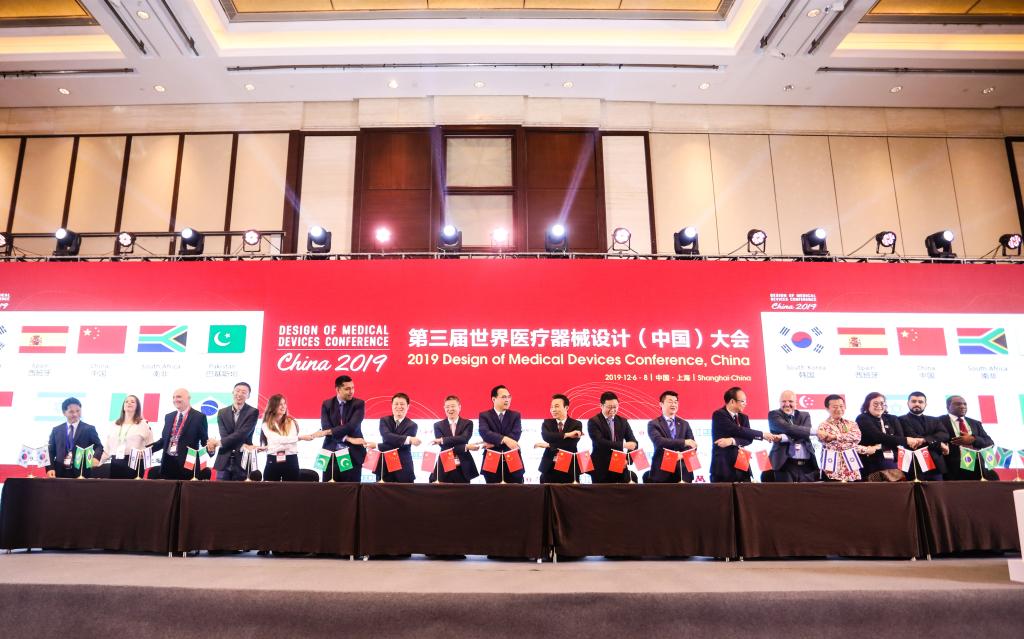
In this September, USST and SJTUSM (Shanghai Jiao Tong University School of Medicine) proposed and established the "Medical-Engineering Interdisciplinary Innovation Institute" and "Medical-Engineering transdisciplinary Graduate School". Medical experts from SJTUSM proposed that improving the diagnosis accuracy and treatment effectiveness and medical services would depend on the engineering research team from USST. At present, two sides have launched 40 medical-engineering transdisciplinary collaborative projects tailored to specific demands.
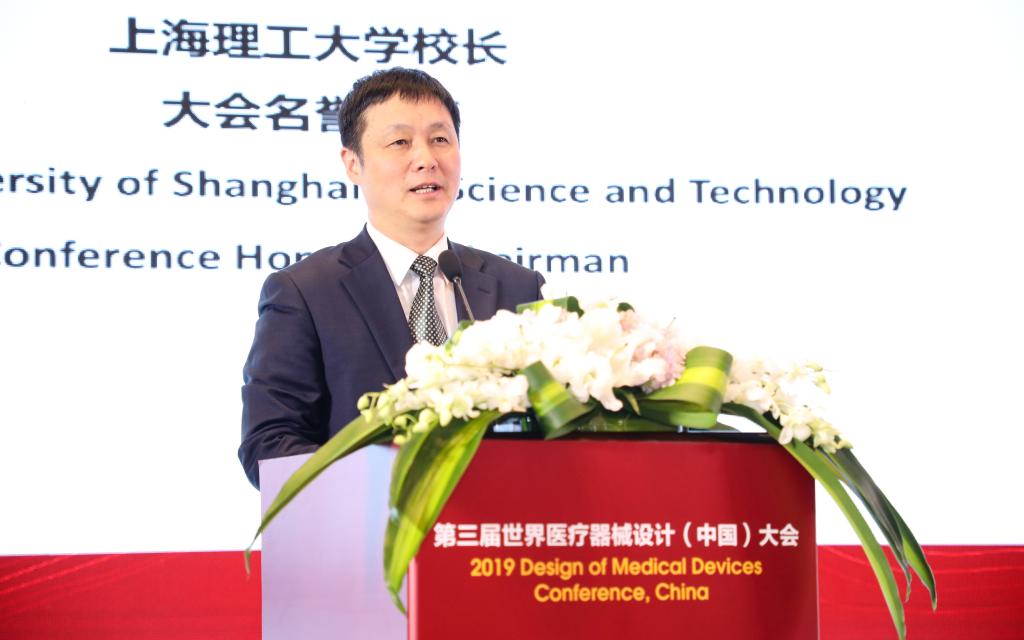
USST President Ding Xiaodong delivered a speech
Zhuang Songlin of USST, academician of the Chinese Academy of Engineering said that USST has embarked on planning medical-engineering interdisciplinary research early on, breaking the boundaries between such disciplines as medicine, engineering and sciences to better integrate interdisciplinary research, so as to solve the clinical problems. He hoped that this process would also boost the capabilities of the graduate students who could have the expertise to solve practical problems in medical technology.
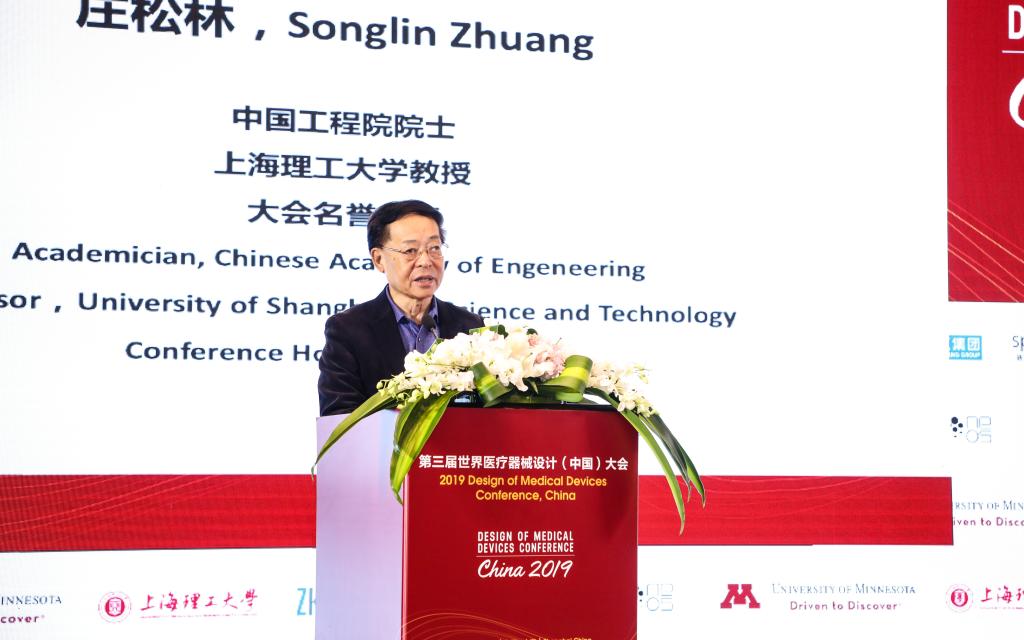
Zhuang Songlin of USST, academician of the Chinese Academy of Engineering delivered a speech
At the opening ceremony, USST, together with 12 educational agencies, R&D institutions, enterprises, innovation platforms, industry associations in the field of medical device from 9 countries including China, Russia, Singapore, Pakistan, Brazil, Israel, Spain, Serbia and South Africa, proposed and established “One Belt One Road” Medical Device innovation and Application Alliance.
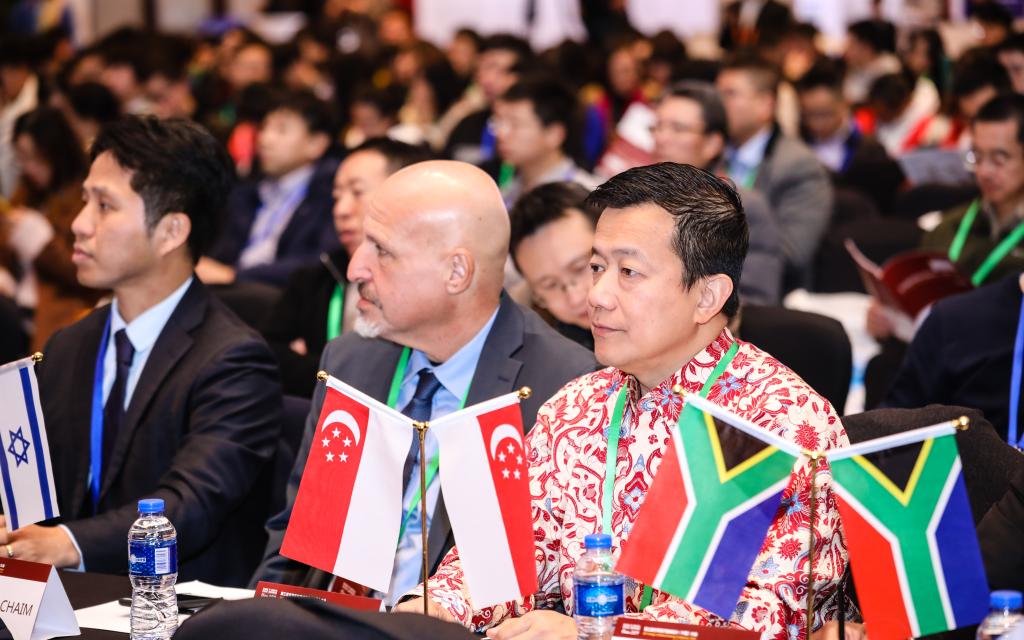
"It is expected that the Alliance can strengthen the collaboration between universities and industries to meet the market demands of human health, improve medical technology by innovation, to build an international community of medical devices along the Belt and Road Initiative and to promote the sustainable and healthy development of the medical industry," said USST President Ding Xiaodong.

 Home
·
News & Events
·
Content
Home
·
News & Events
·
Content

